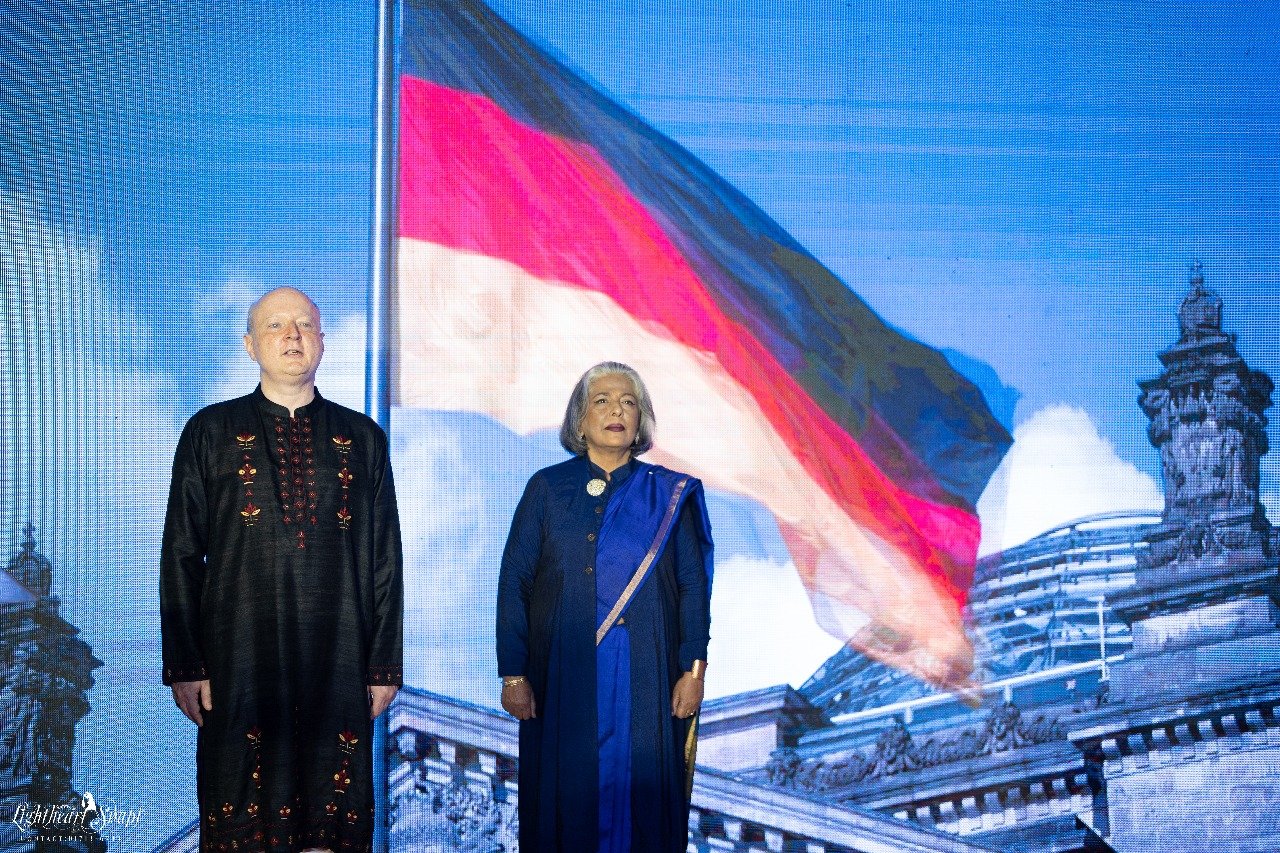News Flash
News Flash

DHAKA, Nov 13, 2025 (BSS) – German Ambassador to Bangladesh Dr. Rüdiger Lotz has praised the interim government’s efforts to hold fair, free and credible national polls, saying that a successful democratic election in Bangladesh will have impacts far beyond its borders.
“Bangladesh will hold the biggest democratic elections in the world in 2026 … (as) more than 127 million people are entitled to vote … the country will return into the league of democratic nations in Asia and in the world … at a time when democracy has a difficult stand in so many regions of this planet,” he said.
Speaking at the Day of German Unity reception on Wednesday evening at the Franco-German Embassy, the Ambassador praised Bangladesh’s ongoing political transition and underscored the importance of ensuring a transparent and credible election next year.
“We stand ready to work with you to enhance these relations even further. This is all the more true as Bangladesh is in a crucial phase right now. We commend the interim government for the work it has done. What is key now is to ensure a good election process and to make sure that the country will see fair, free and, credible elections. I have seen the great efforts in this direction by all stakeholders involved,” he said.
The envoy added: “A successful democratic election in Bangladesh will have its impact far beyond the borders of your country.”
Advisor for Social Welfare Sharmeen Murshid joined the reception as the chief guest.
The Ambassador noted the long-standing partnership between Bangladesh and Germany, highlighting strong trade ties, growing investment interest, and expanding cooperation in sectors such as sustainable development, climate adaptation, humanitarian support, cultural exchange, and higher education.
“At a time when European and in particular German companies are looking for new partners in Asia, I see ample room still for a far bigger trade exchange and investment,” he said.
The German envoy said Bangladesh is a country with impressive growth rates, an emerging middle class of 40 million people, a young population and a favorable geo-economic location.
“One of the goals of my tenure will be to attract more business, to bring more companies to the country in order to see the huge opportunities Bangladesh offers,” he added.
The envoy expressed his confidence that Bangladesh will address some of the issues that have to be in order to make business easier for foreign partners, such as clear rules and regulations, good governance and improved infrastructure.
He emphasized Germany’s commitment to deepening cooperation in the years ahead, pointing to increasing high-level exchanges, rising investment prospects, and continued development assistance through organizations such as GIZ and KfW.
Dr. Lotz referred to increasingly frequent high-level engagements between Germany and Bangladesh, including recent meetings between Bangladesh Chief Adviser Nobel Laureate Prof. Muhammad Yunus and German Chancellor Olaf Scholz, and visits by senior German officials.
Among the many fields of common interest are global challenges such as climate change, the envoy said and added that this cooperation is key and, together with Bangladesh and other partners in the region, Germany will continue to support joint efforts in adaptation as well as mitigation in order to ensure a livable future for coming generations.
He expressed hope for even greater cooperation as Bangladesh positions itself as a pillar of regional stability.
The envoy also praised the growing number of Bangladeshi students choosing Germany for higher education, calling it a “win-win situation” for both nations.
Dr. Lotz reaffirmed that Germany, together with its European partners, views Bangladesh as an increasingly important partner in Asia and a pillar of regional stability.